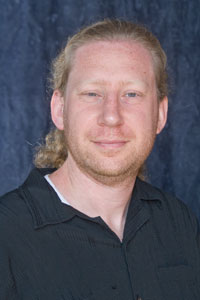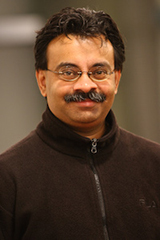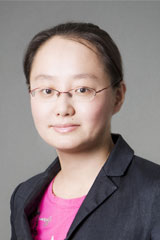Post-Baccalaureate Program
The Harvard John A. Paulson School of Engineering and Applied Sciences, in partnership with the Harvard Graduate School of Arts and Sciences (GSAS) Research Scholar Initiative, will host post-baccalaureate students. This program aims to provide a bridge to graduate education in STEM for students interested in gaining additional skills and enhancing their preparation for graduate education in engineering and applied sciences. Eligible students will be preparing to graduate from undergrad or have graduated within the last three years. Students will participate in a two-year post-baccalaureate training program in which they will engage in extensive research experience, have access to academic courses, and attend professional development opportunities.
Research Areas: Applied Physics, Applied Mathematics, Bioengineering, Computer Science, Electrical Engineering, Environmental Science & Engineering, Materials and Mechanical Engineering (Please see examples of faculty mentors and projects below)
Program Benefits:
- Mentored research assistantship in a Harvard SEAS faculty member lab
- Weekly academic/professional development sessions
- Undergraduate/graduate coursework as needed
- Access to Harvard University resources, including faculty, libraries, software, and tutoring
- Full funding, including a stipend, health insurance, and tuition
- Graduate application preparation coaching
- Funding to attend one conference each academic year
- Opportunity to engage with Harvard Centers and Institutes
If you have questions about the post-baccalaureate program, please contact postbacc@seas.harvard.edu.
- Completed bachelor's degree by the start date of the program (July), but no more than three years before you apply to the program.
- A desire to apply to a PhD program upon completion of the program
- Research interests that align with a SEAS faculty member (please see below for examples of projects)
- US citizen or permanent resident
- Students with graduate degrees (e.g. MS, ME, PhD) are not eligible to apply
Below are this year's faculty mentors. Please note that we welcome applicants from all research areas listed above, even if faculty from those research areas are not listed below. We are continually updating this list.

|
My group studies biological self-organization, with an emphasis on understanding how non-living molecules collectively interact to give rise to living cells, We perform quantitative experiments, which we attempt to interpret with the aid of theory and simulations, and we engage in extensive technique development. Current work in the lab centers on five interconnected themes: the spindle, the nucleus, neuronal morphogenesis, preimplantation embryo development, and cellular energetics. |

|
I work in the theories of communication and computation. A major focus of my work is the role of errors: How they may lead to miscommunication and misunderstanding, and how we may overcome these. The style of work I do involves many aspects of mathematics including algebra, probability, graph theory. If you like applying mathematics to practical (and sometimes not so practical) settings, you'd be welcome in our group. |

|
My research areas include computational complexity, cryptography, randomness in computation, and data privacy. Our group welcomes privacy-oriented students to join research of the interdisciplinary Privacy Tools Project (privacytools.seas.harvard.edu) and OpenDP (opendp.org). We also welcome theory-oriented students to join our wider theoretical computer science research group (toc.seas.harvard.edu). |

|
My research areas include data center networking, distributed systems, and machine learning systems. Our lab group welcomes students interested in exploring networking and system solutions for improving the performance, scalability, and reliability of emerging applications such as distributed training and inferences. |
Applications for the 2025-2026 academic year are closed. We anticipate that the next application cycle will open mid-November – early December 2025.
Interested students must apply through the application portal.
Applicants must provide the following materials to apply:
- Student Application
- Personal Statement
- Statement of Purpose
- Letters of Recommendation
- Resume/CV
- Transcript
The application fee has been removed for all applicants.
Applicants may fill out the RSI interest form for program updates.
If you know of any students who may be interested in this opportunity, please email postbacc@seas.harvard.edu, and we will reach out to the student.
When does the application become available?
The application is now open and is managed by the Harvard Griffin Graduate School of Arts & Sciences Research Scholar Initiative.
How do I apply?
Please apply through the application portal. The application has a deadline of February 1, 2025, 11:59 pm ET.
Is this program available for international students?
Unfortunately, at this time, SEAS is not able to fund international students because of restrictions from our funding agencies. If that changes, we will update our website accordingly.
I am currently in a master’s program. Am I eligible to apply?
Yes, you are eligible. However, our program is generally not designed for students who are already in graduate school. If you are enrolled in a combined B.S.-Master’s program at your undergraduate institution, you are also eligible. However, please note that our program is primarily intended to support students who are not yet pursuing an advanced degree. Also note that students must be no more the 3 years past receiving a bachelor’s degree in their field of study.
How long is the program?
Our program is typically 2 years long, starting in July.
What is the program’s structure?
At the time of admission, you are matched with a faculty member whose research interests align with your research interests. Students will spend the majority of their time in a mentored research project within that faculty’s research group. Students also take an individualized program of courses to help with readiness for graduate school, depending on their background and goals. We also host professional development activities, including fellowship application coaching, presentation skills development, and scientific writing practice. Students can also participate in the larger Research Scholars Initiative cohort led by the Graduate School of Arts and Sciences.
What types of financial support are available for students in the program?
Students receive full financial support over the 2 years of the program, including health insurance, as described on our website.
I intend to pursue a MD or MD-PhD program. Should I apply to the SEAS post-bacc?
Our program is tailored to prepare students for graduate studies in engineering and related fields. Professional development that prepares students for a MD or related medical professional program is not available in our program. Therefore, we encourage you to seek out programs that are more tailored to those interests.
Do you have examples of previous faculty mentors and research projects?
|
|
Our lab groups research topic is "Self replicating and autocatalytic digital magnetic polymers". The research area is theoretical and computational material science with machine learning. We welcome applications from students with some background in computational science or machine learning. We also welcome students with a background in science and python and have an interest in learning about the uses of machine learning. |
|
|
Our nano-design research group is actively developing the next generation of energy-efficient computing systems, by combining new technology advances in nanomaterials, devices, systems, computer architectures, and integration techniques. Example nanomaterials include 1-dimensional carbon nanotubes or 2-dimensional materials, devices may include new types of transistors/memories or photonic devices, and integration techniques we're exploring include monolithic three-dimensional integration, where multiple layers of these circuit devices can be fabricated directly on top of each other to realize massive system-level energy-efficiency benefits for next-generation computing systems. Our work spans a wide range of disciplines from material science, to electrical engineering, to computer science, and we're open to exploring innovative projects related to any of these disciplines - and don't be shy to ask questions about new project directions! |
|
|
Our research group is interested in robotics, specifically the development of wearable devices that enhance, track, and rehabilitate human capabilities. We welcome applications from students with a background in mechanical, electrical, or computer engineering with some experience in engineering design and prototyping (through any of those disciplines). |
|
|
Our research group is interested in robotics, specifically the development of autonomous devices for recording audio and other data from whales. We welcome applications from students with a background in mechanical or electrical engineering with some experience in engineering design and prototyping (either in the electrical or mechanical domains). |



